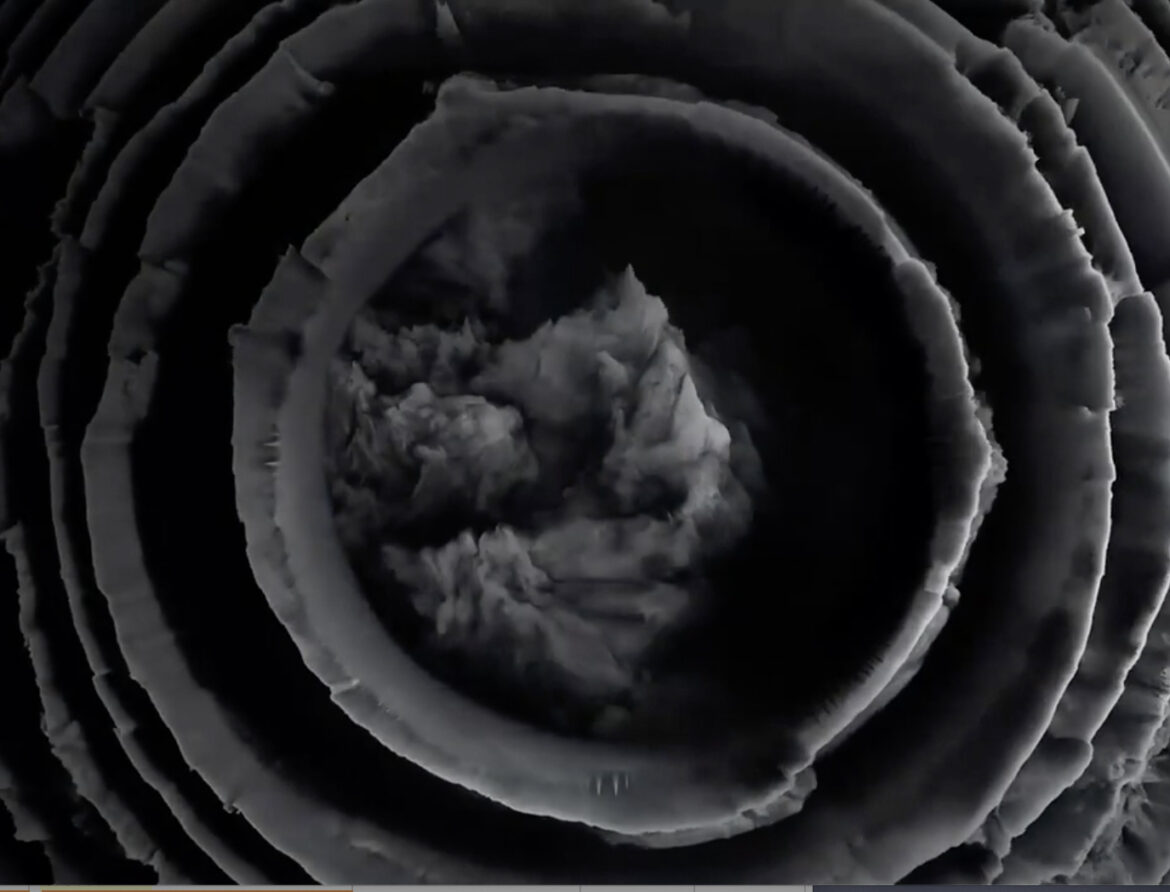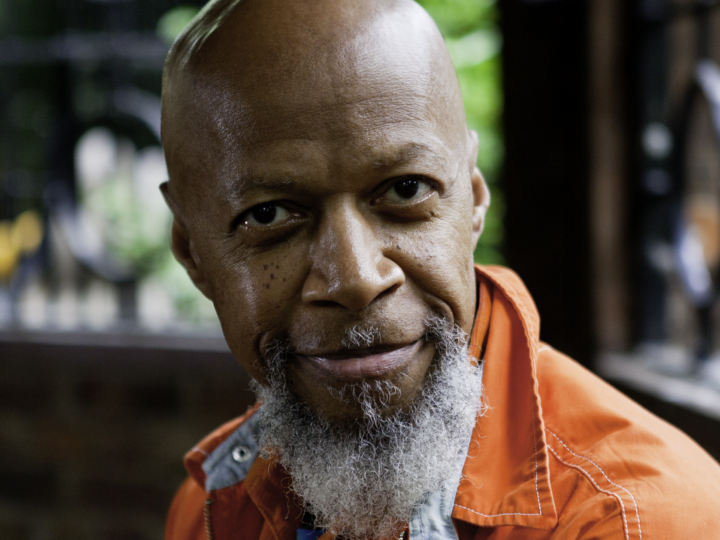
Sound art at Recombinant Media Labs
A fine San Francisco evening. Dressed in feather-mafia leather, J and I arrived at Recombinant Media Labs, a high-tech R&D and production house devoted to developing and implementing surround-sound and video installations. The place is run by Naut Human, a musician and mediatech avant-gardist who has been around San Francisco since the mid 70s, and since I have digging around to find out more about Tuxedomoon and punk-era San Francisco, we had a nice chat about the old days as the crowds moved in. Turns out ex-Tuxedomoon singer Winston Tong played a month or so ago and I missed it, although it sounds like it was a very rough show.
ReSearch’s V. Vale had his booth set up in the Recombinant lobby, and so I went by to say hi and saw that he was selling early issues of Search & Destroy, the punk tabloid he published in the late 70s. I snatched these up and they are proving pretty fun—punk with a knowing cultural edge—mostly interviews with bands (including some choice acts like DNA, Pere Ubu, Cab Voltaire, and Chrome), and great photos and collages (some by Bruce Conner). There’s also stuff about J. G. Ballard, Burroughs, Baader Meinhof, and miner strikes, plus articles like “Anarchy, Surrealism and New Wave.” Vale would later amplify and promote this sort of subcultural savvy in the postpunk Industrial Culture Handbook and the epochal Modern Primitives. He told me that both Barnes & Noble and Borders refuse to stock ReSearch books, which seems deeply peculiar to me. It can’t be a financial motivation—many of those books are very interesting and would sell. “Corporate censorship” is a hectoring and not altogether accurate phrase, but that’s what leaps to mind.
Vale was there to introduce Chris Watson, an ace sound recordist who focuses on beast and field recordings and who played in Cabaret Voltaire back in the day. Watson’s two pieces used Recombinant’s immersive sound system to great effect, plunging us into minimally constructed soundscapes of the great earth. The first piece, “Storm,” was an older collaboration between him and a Swedish electronic musician named BJ Nilsen, and while I didn’t groove as much to Nilsen’s part of the piece, the first section, “No Man’s Land”—which was entirely Watson’s—was deeply moving. My brain parsed the sounds into a narrative of a storm attacking a lonely island, with seabirds massing in harpy choruses of alarm, and seals barking with an eerie and haunting human twist, a sonic uncanny valley, like the cries and moans of souls locked in slippery bodies, exposed to terrible wind and a storm surge that ultimately seemed to drown the microphones and us as well. Towards the end, in one corner of the vast mix, I could swear I heard a deep dark growling voice that sounded neither like a seal or a man but some primeval Grendel-like dweller of the threshold. My spine crackled.
Computer musician Florian Hecker’s three pieces then made my brain crackle. His psycho-acoustic experiments continuously probed the surround-sound set-up, or rather, used the system to probe the poor audience with a dynamically spiky matrix of weird and consistently unexpected malformations of sound–less music or even noise than a mutant and, well, recombinant mockery of time, surface, texture, and dimension. Parts recalled the vaguely unpleasant interstices of strong psychedelic experience, the meat machine music of neural hacking, as well as the more tactile qualities of static, high frequencies, and surface noise. Plus lots of ripped cellophane and twisted rubber balloons.
The suspicion that we were lab rats in the hands of this chilly German man was confirmed in his last piece, an almost strictly repetitive pulse: loud, screechy, insistent. Repeated noises like this can induce trance, and ghost words started to form themselves in the manner discovered by John Lilly. After a few minutes, the piece became one of the more successfully annoying things I have heard—not annoying like Christian rock or all those shitty covers of old hippie hits, but artfuly annoying, in that taciturn German way, as if the probing head of Hecker’s sound scalpel had zeroed in on just the right neural networks to trigger the desire to scream or at least to flee, which some people actually began to do before the electro-hammer stopped pounding and the lights went up.
Watson then played a new 4-channel piece, “Midnight at the Oasis,” a sublime and spectral time compression of dusk-to-dawn recordings he had made while in South Africa’s Kalahari Desert working on one of the nature documentaries he does. The familiar chitter of crickets was cut with deeply unfamiliar sounds of African birds and odder insects, and though the imaging was not as localizable as I would have expected from the set-up, the occasional mutterings of big game and serious cats did set me on edge. The dawn chorus was sublime, as not just my ears but my body swelled into the sweet tension of breaking morning light, the world fresh again, and still.
We rounded out the night with a fine meal at Nopa’s, now one of our preferred places to eat in the city. Part of the reason is that they are open quite late, bucking one of the most irritating cultural conventions of this toy city I live in. The place has great Cali mishmash cuisine; plenty of small plates; and the vibe has a pleasant west coast informality, that mellow-funky sub-yuppie leisure overlap of stylee bohemia and genuine bonhomie. By the window there is a huge wooden table that parties share, and you can usually slide in there without a reservation. I dig sharing the table with strangers, mixed together but separate, wordlessly probing the boundaries of company, chats occasionally springing off of overheard words.
Nopa’s bartenders are great too, classy fanatics who will happily school the budding booze fan. Here I tasted my first Aviation, discovered some heady local gins, and had the best Negroni I’ve tasted yet. Clicking the “I’m Feeling Lucky” button, I asked the fellow to make me some gin thing using one of the house bitters, and he whipped up an elegant delight out of Aviation, cherry bitters, and St. Germain elderflower liquor. Then he cracked out some blueberry cassis he had made himself. Zing! A night of notes…




